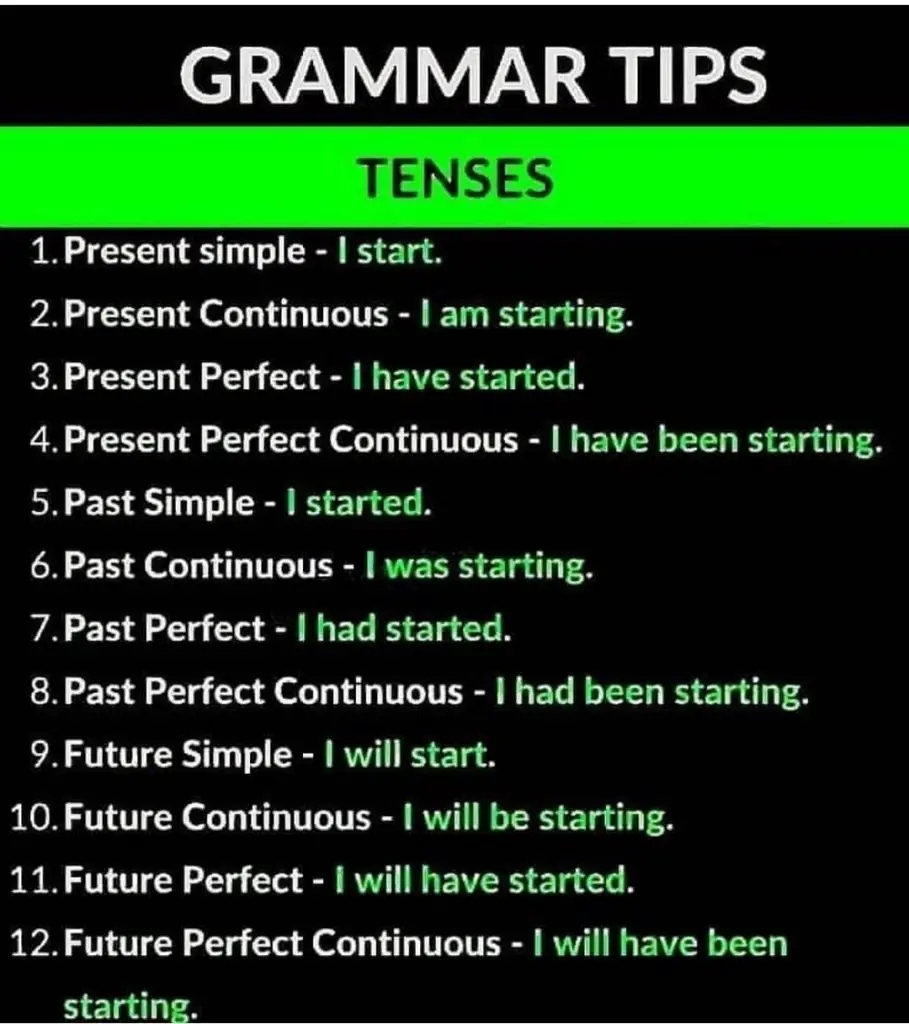In English grammar, there are 12 tenses that are used to indicate the time of an action. Tenses play a crucial role in conveying the timing of events and actions in a sentence. Understanding and using the correct tenses can greatly enhance the clarity and accuracy of your communication.
Each tense has its own unique structure and usage, so it’s important to familiarize yourself with them in order to effectively communicate in English. Whether you are writing an essay, giving a presentation, or having a casual conversation, knowing how to use the 12 tenses correctly is essential.
The 12 Tenses in English
The 12 tenses in English are divided into three main categories: simple, continuous, and perfect. Each category has its own set of tenses that are used to express different aspects of time and duration.
The simple tenses include present simple, past simple, and future simple. These tenses are used to describe actions that are happening regularly, in the past, or in the future, respectively. For example, “She goes to the gym every day” (present simple), “He played soccer yesterday” (past simple), and “I will see you tomorrow” (future simple).
The continuous tenses include present continuous, past continuous, and future continuous. These tenses are used to describe actions that are ongoing or in progress at a specific time. For example, “She is studying for her exam right now” (present continuous), “He was watching TV when I called him” (past continuous), and “I will be working late tonight” (future continuous).
The perfect tenses include present perfect, past perfect, and future perfect. These tenses are used to describe actions that are completed or have already happened before a certain point in time. For example, “She has already finished her homework” (present perfect), “He had already left when I arrived” (past perfect), and “I will have graduated by next year” (future perfect).
Understanding and mastering the 12 tenses in English can greatly enhance your ability to communicate effectively and accurately. By using the correct tenses in your writing and speech, you can convey the timing and duration of actions with precision. Practice using the different tenses in various contexts to improve your fluency and confidence in English.
In conclusion, the 12 tenses in English are essential for expressing the time and duration of actions in a sentence. By familiarizing yourself with the simple, continuous, and perfect tenses, you can communicate with clarity and accuracy in both written and spoken English. Keep practicing and honing your skills to become proficient in using the 12 tenses effectively.
